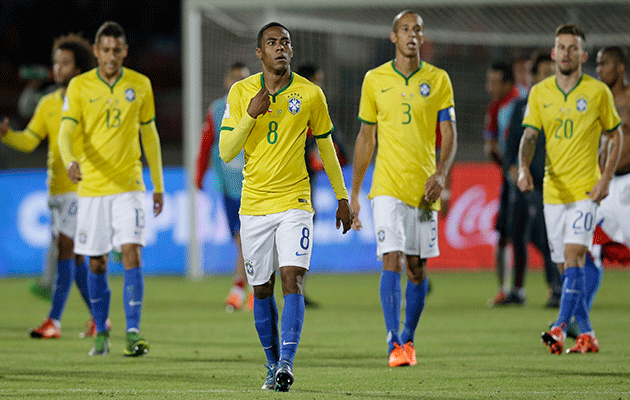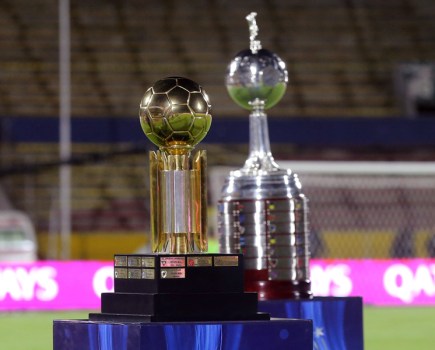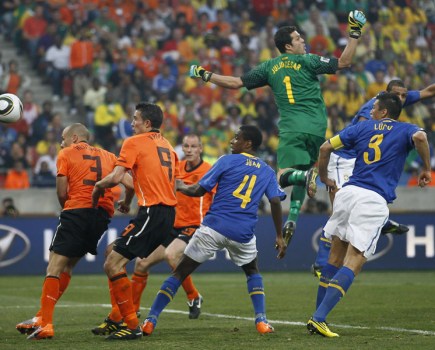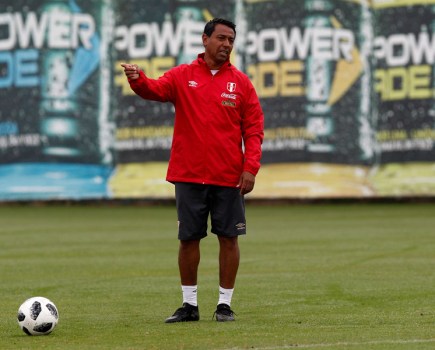Dunga’s Brazil could claim to the world champions of international friendlies – 12 wins out of 12 since the 1994 World Cup winning captain was appointed for his second spell in charge after Brazil 2014.
But in the competitive matches it is a different story – highlighted by the team’s 2-0 defeat to Chile in the opening round of the Russia 2018 campaign. Indeed, it was a match which cast doubts on the – admittedly strange – decision to give him a second chance. True, the team were without captain and chief attacking force Neymar. Even so, the depressing aspect to the defeat was the evidence that so little has been learned.
Brazil, of course, carried a threat on the counter-attack, the weapon they have been obsessed with in recent times. Indeed, they had opportunities to take the lead. Willian was their most impressive player, slicing through the lines of Chile midfield. But his Chelsea team-mate Oscar had a frustrating time, repeatedly wasting the chances.
In Dunga’s first spell, from 2006-10, this was precisely the kind of game Brazil would have won. So often, the results were better than the performances. Uruguay were beaten 4-0 in Montevideo, a historic mark because Brazil had never before won a fully competitive game in the Centenario stadium. But had the goalkeepers been switched around it could have been a very different story. Sebastian Viera had a torrid time for Uruguay, while Julio Cesar was magnificent for Brazil – as he was consistently all through the campaign. Away to Ecuador, at the altitude of Quito, Brazil nearly snatched a win – in a game where they could even have conceded double figures.
The quality of the play – especially the midfield elaboration – was not good. But superb goalkeeping and the efficiency of the counter-attack kept tipping the balance. Now, with Jefferson still looking nervous in goal and Neymar missing from the attack, it is a different story.
The Chile game highlighted the paucity of Brazil’s central midfield play. Luiz Gustavo as the holding midfielder alternated good moments of protection with silly rushes of blood to the head. He gave away the free kick from which Chile opened the scoring, committing a completely unnecessary foul on an opponent with his back to goal. But at least he was noticed – not least after he was substituted, and Chile carved through Brazil with ease to score the second goal.
Alongside him, though, Elias, the supposed all rounder, was barely seen in the game. It is this position in which contemporary Brazilian football has fallen so far behind the best team’s around. They lack a midfielder with the intelligence and passing range to dominate the game from deep. Elias, currently with Corinthians, is a consistently interesting performer in domestic Brazilian football. But at the age of 30 he has yet to show that he can step up, enduring a miserable time in Europe and playing more than 25 internationals without making much of an impression.
He stands by to get another chance at home to Venezuela on Tuesday night. It is an inviting one. The opponents have the look of a side who peaked a few years ago, and despite Thursday’s mishap, Brazil go into the game in Fortaleza as strong favourites.
In training Brazil have replaced Oscar with Lucas Lima of Santos, a late developer who is enjoying a fine Brazilian Championship. The left footed midfielder can knit a team together with his passing. As Dunga would acknowledge, this is easier on the spaced out pitches of domestic football than it is on the more compact fields of the international game. But he is surely worth a look – and the bold move would be to bring him in not for Oscar, but for Elias, and ask him to set up the play from deep. That choice, though, would need a revolution in the mind of Dunga.






